Coronavirus: Covid-19 survivors meet for exercise and support
- Published
All participants have been on a breathing machine in hospital with the virus
It may look like any other exercise class but everyone here has a shared experience - they are all in recovery from Covid-19.
Every one of them was seriously ill with the virus with some almost dying.
Arranged by Aneurin Bevan University Health Board, they meet at Newport's Velodrome for 90-minute sessions that include activities such as treadmills, exercise bikes, punch-bags and pilates.
One of those taking part is Taekwondo champion Lewis Barton, 30.
He believes if it had not been for his fitness before having the virus, he would not have survived. Now hopes to eventually compete in world championships again.
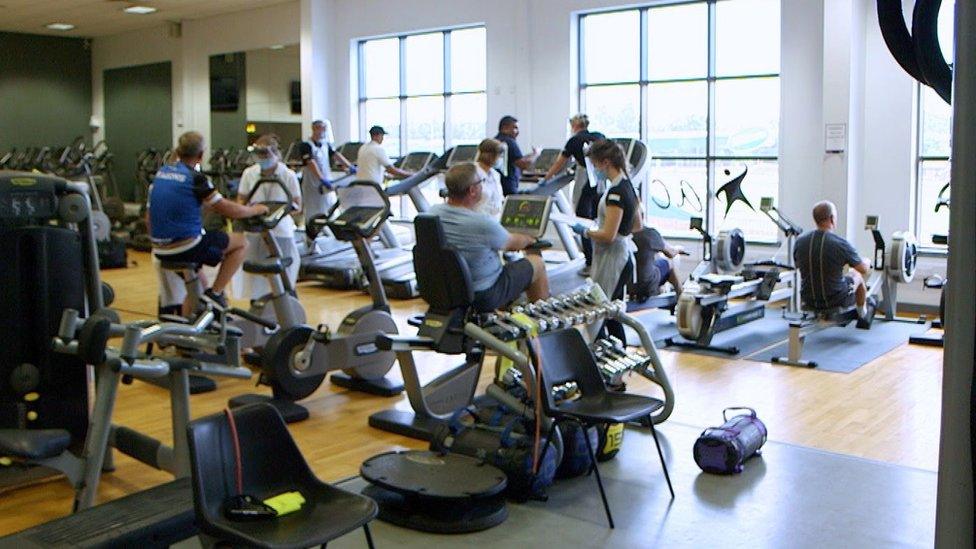
The sessions are for patients who were on breathing machines in hospital
The participants - who all had to be put on a ventilator while they were ill - also get instruction, help and advice from health specialists, and a personal rehabilitation plan.
"My friend said it was touch and go. They said I came that close to dying," Mr Barton, who is from Newport, said.
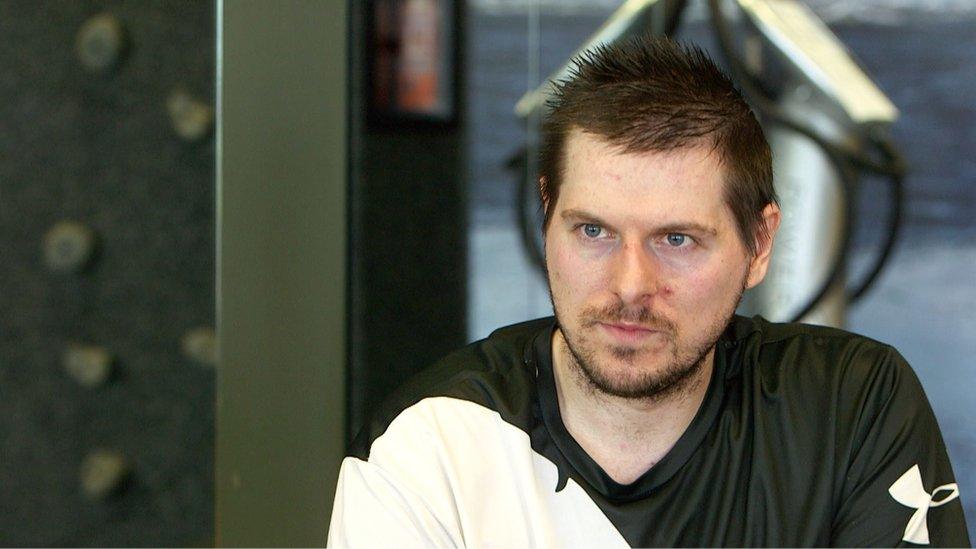
Lewis Barton said it was "touch and go" whether he would survive Covid-19
"I spoke to a nurse that I knew when I was on the final ward and I was saying 'I'm bored and I really want to go home'.
"And she said to me 'Lewis, I don't think you realise how poorly you were. If it wasn't for your fitness you wouldn't have made it'."
For others, simply being able to live a normal life again is the goal.
Steelworker Justin Watson, 42, from Newport, said: "I have no memories whatsoever, only the last eight days I remember when I was up on the final ward, getting ready to come home.
"But reading the diaries which my family prepared during that time... I realised how bad it was.
"They had a phone call on the first weekend about preparing themselves for the worst.
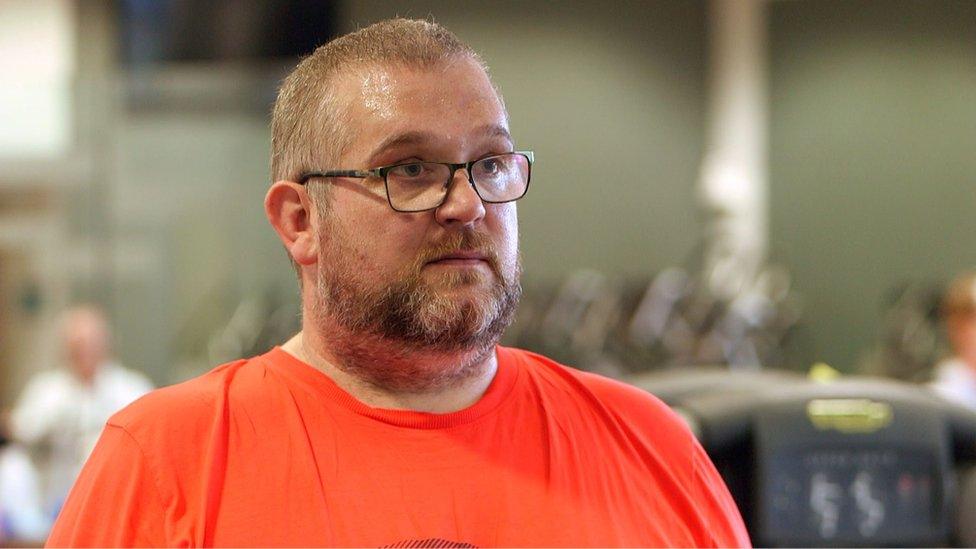
Justin Watson says it could be a long time before his health is back to normal
"Realistically, I know it's going to take months and months, if not years to get back to where I was before.
"But, with the help and support of these people and these schemes, it's going to be an easier and easier thing to happen."
William Powell, 55, who was an assembly member for the Mid and West Wales region between 2011 and 2016, said he got to hospital just in time.
"My oxygen saturation levels were at 77 - which I've come to understand since is not a very good place to be," he said.
"I think my lips were starting to turn blue, and I just got in there in the nick of time really and I'm very grateful to my doctor, and to family for having insisted that I sought help when I did."
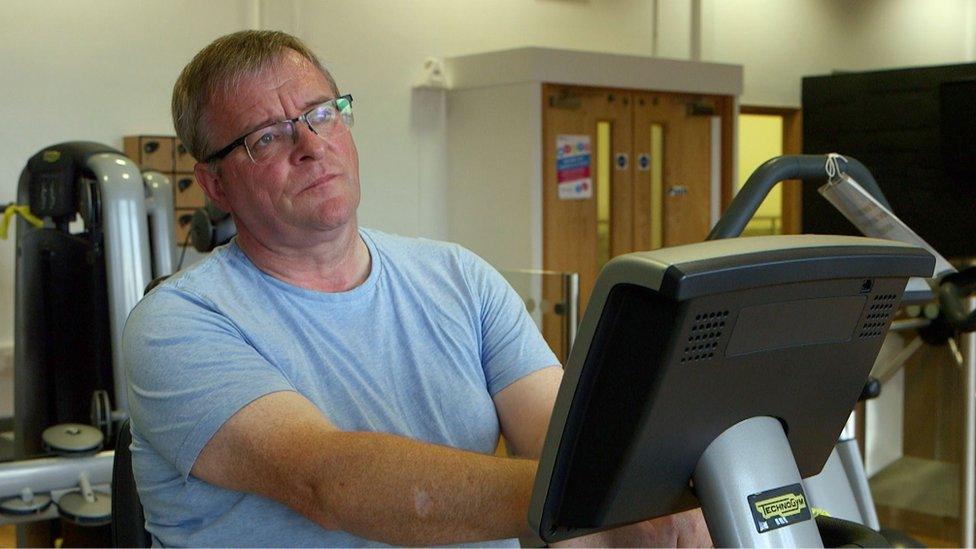
William Powell said the virus has taken a significant toll on his body
Mr Powell said he was getting there - but still experiencing tough periods.
"It's well documented that only about 50% of of ICU patients made it through to leave hospital in one piece," he said.
"It does take a significant toll on your musculature and so on and and building up from those first steps, and then moving to a walking stick, and then moving to walking independently and then building that strength up, that's something that takes some dedication.
"But the professional support, all those teams coming together, is something that's been really important to me."
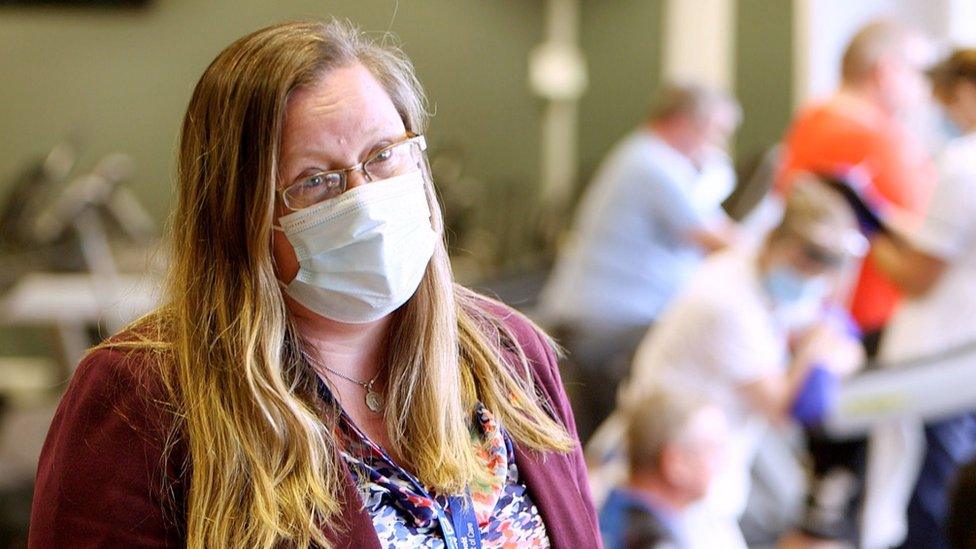
Respiratory consultant Dr Sara Fairbairn says it has been incredible to see the progress made
Dr Sara Fairbairn, a respiratory consultant at the Royal Gwent Hospital, said "amazing progress" had been seen in patients.
"I was there when they were nearly dying, or we had to send them to the intensive care unit and speaking to relatives on the phone, breaking really bad news for them," she added.
"To go from that situation to the situation we are in now is incredible really."
- Published14 July 2020
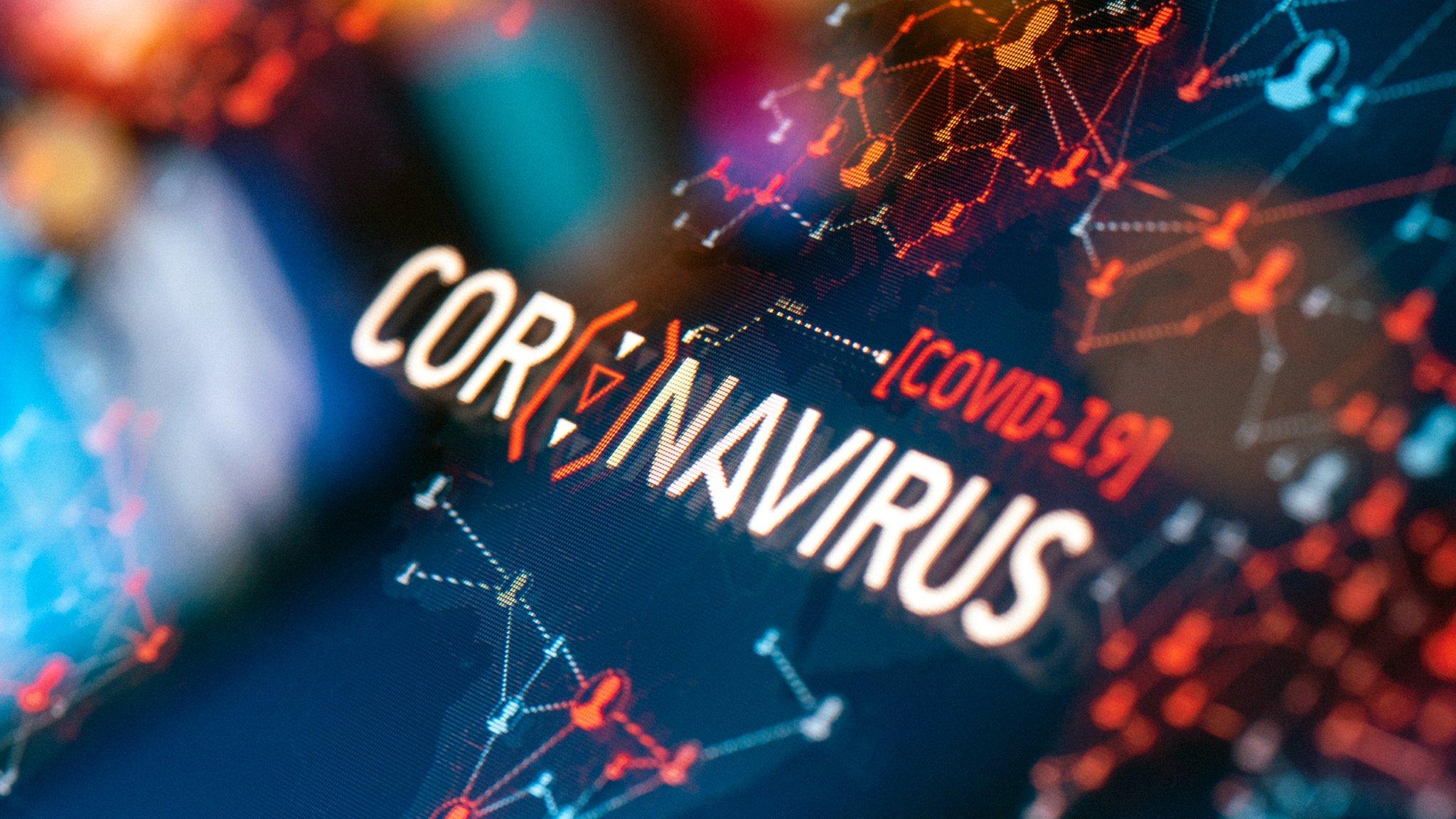
- Published1 May 2020
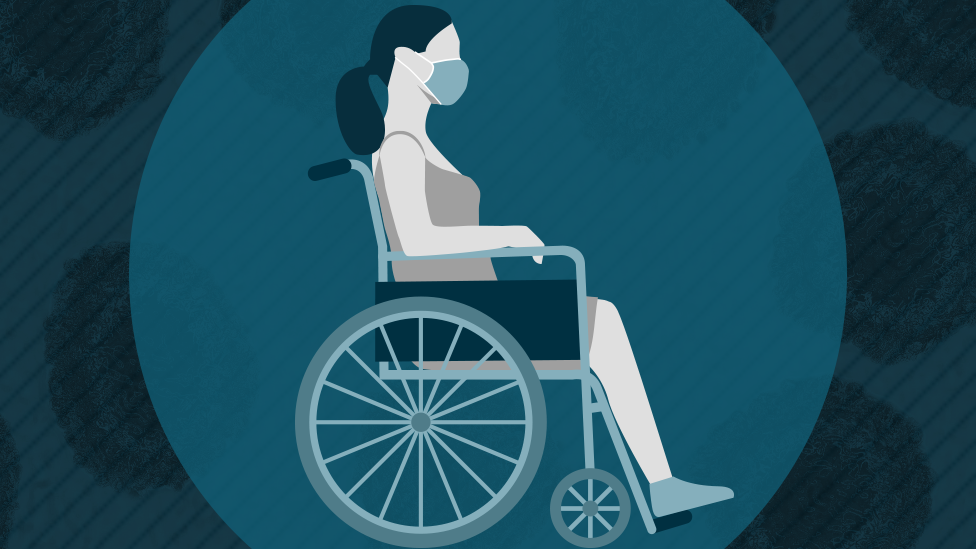
- Published6 October 2021
